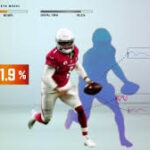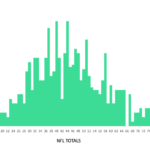Predicting NFL games can be both exciting and challenging! Whether you’re a casual fan looking to enhance your game-watching experience or an aspiring sports bettor, understanding how to analyze and forecast game outcomes is a valuable skill. In this tutorial, we’ll break down the essentials of NFL game prediction into easy-to-follow steps, helping you make more informed guesses on who will win.
Step 1: Understand Key Factors That Influence NFL Games
Before diving into predictions, it’s important to know the main elements that affect the outcome of NFL games:
- Team Performance: Look at recent wins, losses, and overall season records.
- Player Health: Injuries to key players like quarterbacks or star defenders can drastically change a team’s chances.
- Home Field Advantage: Teams playing at home often have a better chance due to crowd support and familiarity.
- Weather Conditions: Rain, snow, or wind can impact gameplay, especially passing and kicking.
- Matchup History: Some teams historically perform better against certain opponents.
- Coaching Strategies: Coaching styles and adaptability during games matter.
- Betting Odds: These reflect expert and market opinions and can serve as a useful reference.
Step 2: Gather Reliable Data
Accurate predictions require solid data. Use reputable sources such as:
- Official NFL statistics websites
- Sports analytics platforms
- Injury reports updated close to game time
- Weather forecasts for game day
- Expert analyses and betting lines
Step 3: Analyze Team and Player Stats
Look beyond just wins and losses. Focus on:
- Offensive and defensive rankings
- Turnover margins
- Third-down conversion rates
- Time of possession
- Quarterback ratings
- Rushing vs. passing efficiency
Compare these stats between the two teams to identify strengths and weaknesses.
Step 4: Consider Recent Trends and Situational Factors
Teams on winning streaks or coming off big losses can behave differently. Also, consider:
- Motivation level (e.g., playoff implications)
- Travel fatigue for away teams
- Short weeks between games affecting rest
Step 5: Use Predictive Models (Optional)
If you’re comfortable with numbers, try simple predictive models like:
- Power Ratings: Assign scores to teams based on their performance metrics.
- Regression Analysis: Use statistical methods to estimate outcomes.
- Machine Learning Tools: For advanced users, algorithms can analyze vast data sets.
Many websites also offer free prediction models you can learn from.
Step 6: Make Your Prediction
Combine your insights from data, trends, and models. Decide which team has the edge and by how much. Remember, no prediction is guaranteed, so consider probabilities rather than certainties.
Step 7: Track Your Predictions and Learn
Keep a record of your predictions and outcomes. Analyze where you were right or wrong to improve your future forecasts.
Final Tips
- Stay updated on last-minute news such as injuries or weather changes.
- Avoid biases toward favorite teams.
- Use predictions as a guide, not an absolute.
Predicting NFL games is a blend of art and science. With practice and disciplined analysis, your ability to forecast game results will improve, making the NFL season even more thrilling to follow!








